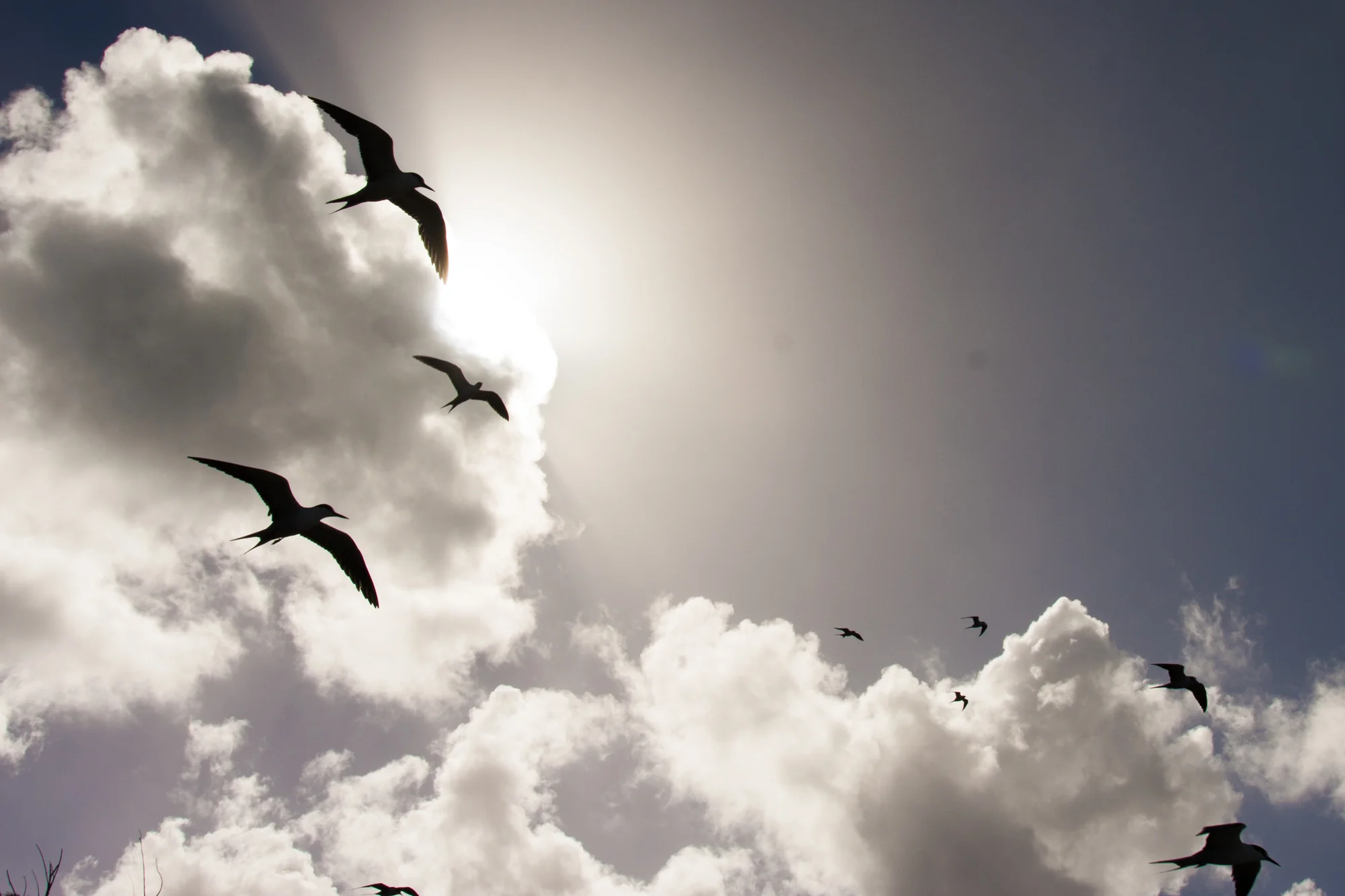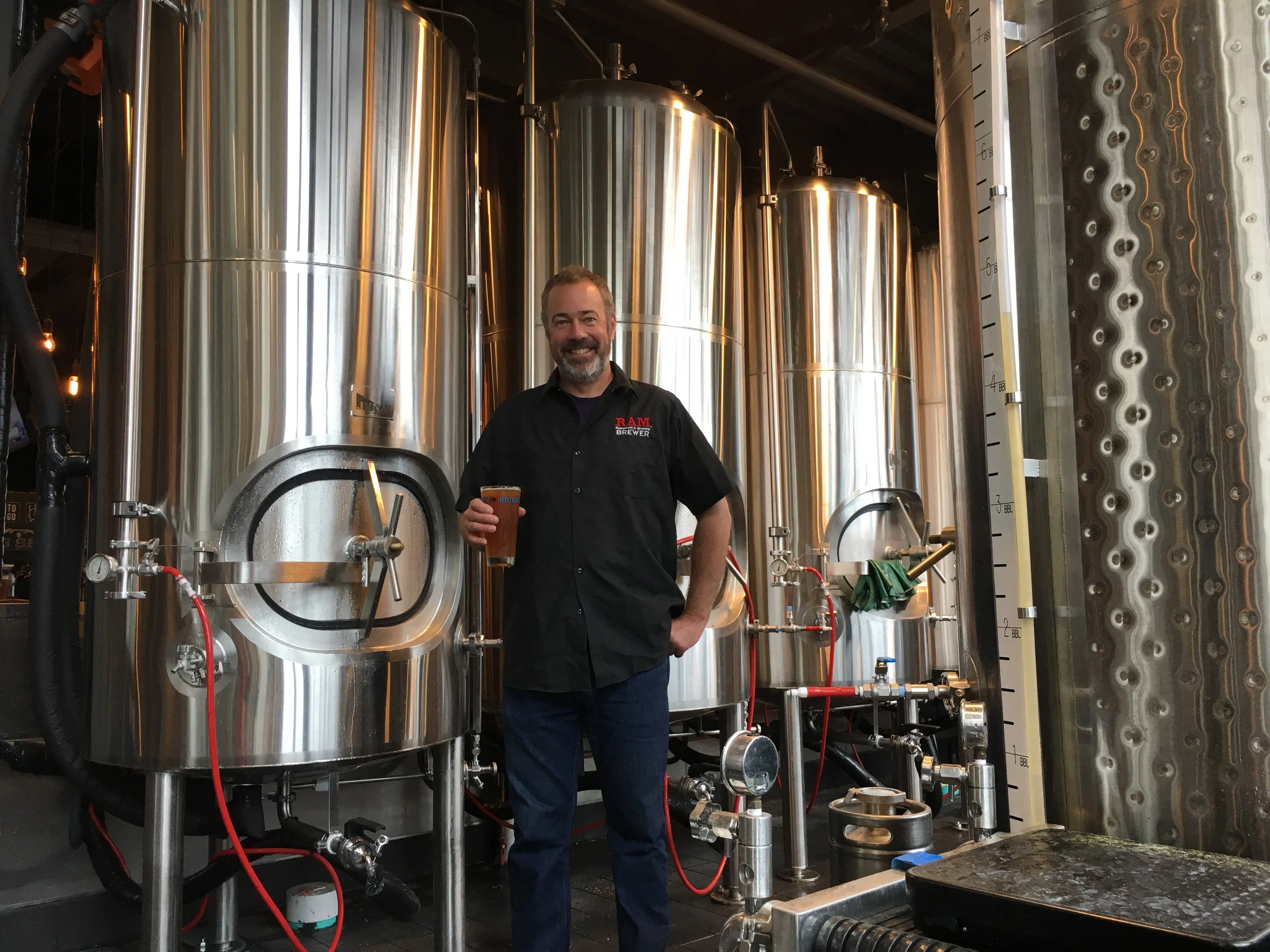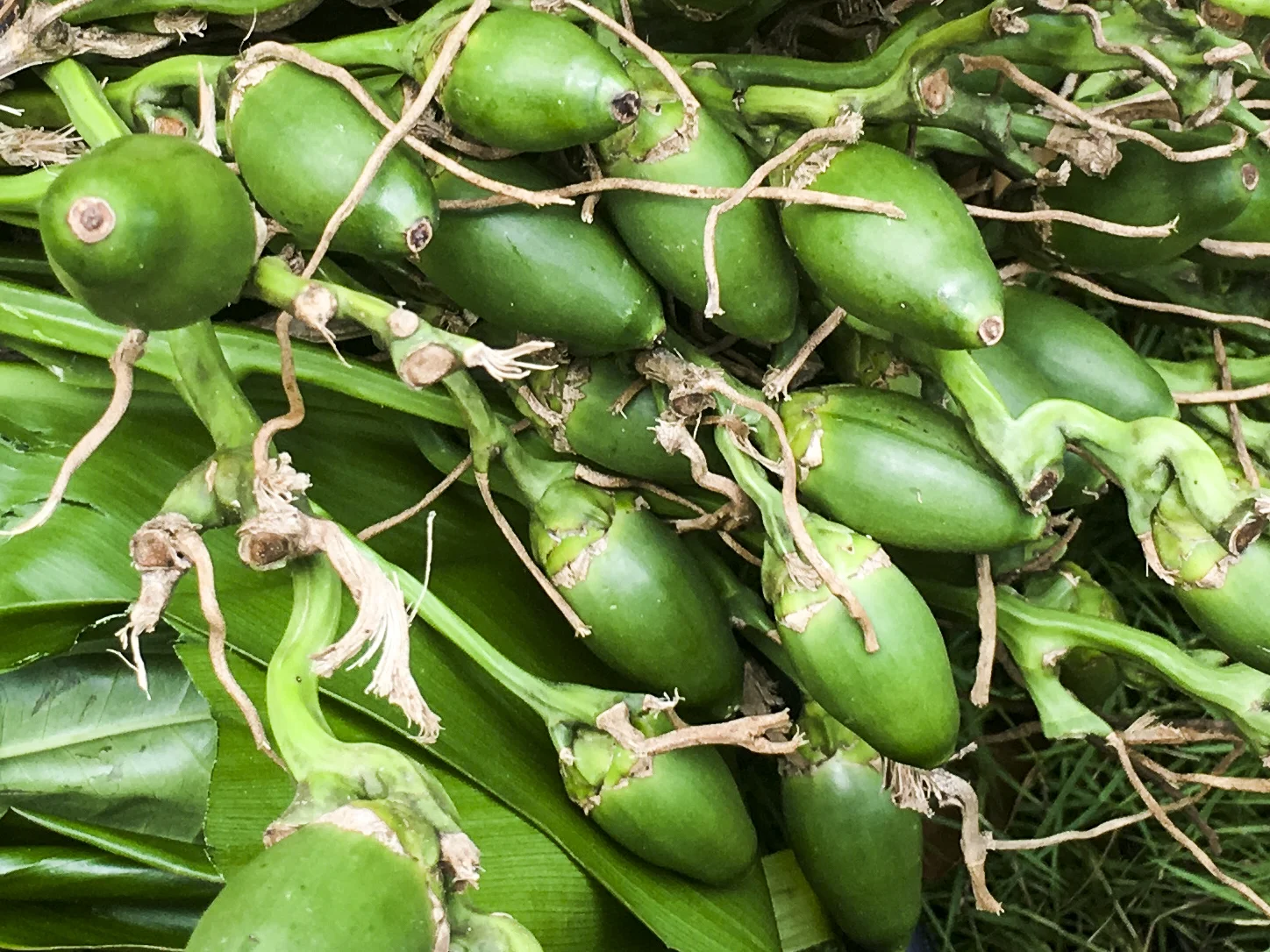Bullet Birds
By Michael H. Kew
ANNABELLE, A DOCENT, was to show me a coralline sand cay islet—a nature preserve—three miles out in the lagoon. We stepped aboard a fiberglass skiff driven by a middle-aged fisherman who spoke no English; he told her he was confused by my surfboard—nobody surfed this place.
Short, smiley, and enthusiastic about her island, she worked for Rodrigues Discover, a non-profit conservancy group that started in 2007. She was 27 and from Port Mathurin; she’d spent four years as a pharmacist on Mauritius, commuting daily from Beau Bassin to Port Louis, but missed Rodrigues so much she returned and vowed never to again live on the mainland which, to the average Rodriguan, was alien.
“Mauritius is too fast,” she said. “Here, we take time to live.”
By air it was expensive for Rodriguans to visit the mainland, so most went by sea aboard the Mauritius Pride. The eastward crossing took 24 hours, 36 on the return. “It’s not so comfortable, but we prefer it,” she said. “Everybody gets seasick.”
As we headed out on the shallow lagoon, the boat driver line-fished but caught nothing. We passed Pointe Fouche, which was treeless and bone-dry. Cattle drowsed on the beach. “Here, rain is precious,” Annabelle said. “This part of the island, the animals here, they drink saltwater. They drink the sea. When we eat them, there is no need to add salt because the meat is already salted.”
We skimmed across the water, passing waving fishermen, and since the tide was out we went slowly—the hull scraped sand a few times.
I asked Annabelle if she’d brought lunch. “Only for you," she said. "I don’t eat on Tuesdays and Fridays—not every week, but sometimes—to pray to my god. Are you Catholic?”
“No. For me, nature is god.”
She worshiped at the Apostolic Vicariate, a Roman Catholic church in Port Mathurin. “No smoking, no alcohol,” she said. “I prefer purity.” I told her I was slightly hungover.
The islet’s leeward side offered a bright whitesand beach sheltered from the wind, a private paradise, the kind where a honeymoon resort could exist. Instead there was a shack with a resident warden and thousands of birds—terns and noddies squawked and flew at us as we stepped ashore.
Casuarina trees provided shade from the sun. The leeward air was hot and still, but out along the edge of the lagoon, amid mild spindrift, the surf looked sublime. Perhaps head-high and symmetrical, the swells bent along a curve in the reef, creating a mellow left-hander that was ideal for the 5’6” Andreini Bullet I’d brought.
Wearing reef booties I walked a kilometer across the sandy shallows of the lagoon, avoiding urchins and bits of sharp coral, and paddled through a thin gap in the reef. Under small swell the setup was benign, devoid of current; each wave broke in the same place and peeled along the reef for 50 yards before expiring in deep water. It was sectiony with an almondy tube and a thin, high-line lip. The sets were consistent and from a steep southwest angle, hitting the reef properly. I doubted the spot could hold any larger, but Jerome later said a friend of his had kitesurfed there on a much bigger, slabbier day, prompting the name L’Etape, French for “The Step.”
But at head-high the wave was user-friendly, something C-grade that you might find in the Maldives or a small day at One Eyes. Its sea was alive with baitballs and diving birds and flying fish chased by barracuda; L’Etape was undoubtedly sharky and volatile and inherently risky as it was a long way from help. It was a wild wave that I enjoyed surfing, and it was unlikely to host another surfer for a long time.
Back beneath the shade of the casuarinas, Annabelle asked me if I had ever seen snow, and if California had beaches like this.
“Yes, and no."
“But I thought California was like a paradise place. The snow is so cold, yes? How do you live in it?”
“It never snows where I live. Snow is in the mountains, far away.”
“Are there many birds, like here?”
“Yes, but they are much more skittish and wary of humans.”
We walked to the eastern windward side of the island, doused with litter. Annabelle said there was a man who comes specifically to remove it. Terns and noddies soared around and swooped at us—a few nearly landed on my head—and they were both curious and territorial since the islet was their breeding ground. Human presence was a massive intrusion. Us.





